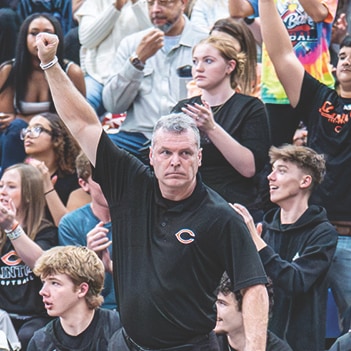This month, give thanks to our many heroes
May is National Military Appreciation Month, since 1999 an annual opportunity for Americans to honor veterans and active-duty members of our military services.
But this month-long observance takes on special meaning in 2020, a year so disrupted by COVID-19, because so many men and women on the front lines of this pandemic are also active-duty military or veterans now protecting us on a very different kind of battlefield.
Perhaps thousands now serving their nation so heroically as medical caregivers and first responders honed their skills in military service, sometimes under the stress of combat conditions. Today they are gallantly applying their compassion and skills in a no-less stressful battle against COVID-19.
Recent months have also seen active-duty military called to assist in the pandemic, for example the physicians and nurses on military hospital ships in New York City and Los Angeles harbors, and the soldiers who set up temporary hospitals in stadiums, convention halls and New York’s Central Park. In my own state of Ohio, National Guard troops helped communities deliver food, while others with medical backgrounds stepped in to care for the sick in an overwhelmed federal prison. Other examples abound.
As we use National Military Appreciation Month to salute these heroes – and indeed all the men and women serving our country today and veterans who served in years past – we must not forget thousands of veterans who continue to struggle with service-related injuries, including traumatic brain injury (TBI) and Post Traumatic Stress Disorder (PTSD), which is a form of brain injury.
In fact, nearly 450,000 combat veterans have returned from their tours of duty in either Iraq or Afghanistan with TBI sustained from an improvised explosive device (IED) blast, the explosion of a rocket-propelled grenade or the concussive force of heavy artillery. All are struggling with a potentially devastating, yet outwardly invisible consequence of service to our nation.
Because these veterans had great difficulty receiving medical assistance for these wounds of war, I founded the Resurrecting Lives Foundation, a non-profit organization dedicated to seeing that combat veterans with TBI receive expert medical care, rehabilitation and community support services they need for a successful return to civilian life. Our goal, put another way, is to keep our former military service members in “service” to their families and communities by collaborating for their brain health.
As a rehabilitation physician and as someone who has worked to recover from a serious, though not service-related, brain injury of my own, I empathize with these injured veterans and their families. Their injuries are greater; their resources are limited. But from my dual perspective of having treated TBI patients while also having lived firsthand with those dark days of depression, I know just how challenging it can be to summon up the motivation and courage to find a new normal – to “turn the lights back on” in a world grown dark.
This May, as we pause to honor all who have worn America’s uniform, we as a nation cannot overlook the “invisible” wounds of war and must commit to providing the best rehabilitative and psychological long-term support for our injured service members, upon and after their return.
If you or someone you know is a veteran who is experiencing one or more signs of traumatic brain injury – headache, blurred vision, difficulty with bright light, ringing in the ears, excessive tiredness, memory loss or poor concentration – seek medical help for yourself or your loved one as early as possible. The good news is that TBI is treatable and its symptoms are manageable with proper treatment.
National Military Appreciation Month is our opportunity – one I believe is an absolute obligation – to honor past and present members of the military. This year, it is a particular occasion to salute those past and present military members who are serving us now in the fight against COVID-19. But it is also our responsibility to speak out on the debt we owe to those who returned home struggling to overcome injuries sustained while serving us.
No one is more deserving of the expert medical care, rehabilitation services and community support that are needed for their successful return to civilian life. Those who get involved in serving our returning heroes, no matter how small a gesture that work may be, will be a saving grace in the eyes of an injured veteran. For those struggling with TBI, you must be the light they are searching for.
Dr. Chrisanne Gordon is a physician who has personally struggled to recover from a brain injury, an experience that inspired her to create the national Resurrecting Lives Foundation, to help military veterans recover from TBI.

